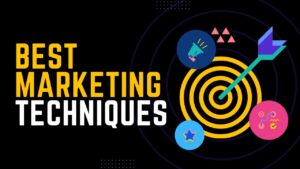The realm of pharmacovigilance beckons, promising a fulfilling journey safeguarding public health by ensuring the safety of medications. But before embarking on this noble quest, understanding your eligibility is crucial. This article sheds light on the key pathways and qualifications needed to unlock a rewarding career in pharmacovigilance, focusing on your skills in clinical research, clinical data management, regulatory affairs, medical coding, and medical writing.
1. Diverse Paths, Shared Destination: The Eligibility Landscape
Pharmacovigilance welcomes individuals from diverse academic backgrounds, each with unique skillsets contributing to the holistic picture of drug safety. Here’s a glimpse into the eligibility criteria for different career entry points:
Clinical Research:
· Education: A bachelor’s degree in life sciences like biology or pharmacology is essential. Master’s degrees in public health, clinical research, or pharmacovigilance provide a competitive edge.
· Skills: Strong analytical and critical thinking are key, along with excellent communication and interpersonal abilities. Attention to detail and meticulous record-keeping are also crucial.
· Experience: Volunteering in clinical trials or research projects, or internships in pharmaceutical companies, demonstrate initiative and provide valuable exposure.
Clinical Data Management:
· Education: A bachelor’s degree in science or statistics is often preferred, while a Master’s in Clinical Research or biostatistics adds immense value.
· Skills: Expertise in data analysis, statistical software (SAS, R), and strong proficiency in data cleaning and validation are essential. Additionally, meticulous documentation and adherence to regulatory guidelines are key.
· Experience: Prior experience in clinical data management or related roles, such as research assistant or data coordinator, is highly desirable.
Pharmacovigilance:
· Education: A background in life sciences or pharmacy is preferred, with postgraduate qualifications in pharmacovigilance or pharmacoepidemiology providing a significant boost.
· Skills: Strong analytical and communication skills are crucial for evaluating safety data and interacting with healthcare professionals and regulatory agencies. Knowledge of drug safety regulations and databases is essential.
· Experience: Prior experience in pharmacovigilance, drug safety monitoring, or adverse event reporting is highly advantageous.
Regulatory Affairs:
· Education: A bachelor’s degree in life sciences, pharmacy, or a related field is mandatory. Master’s degrees in regulatory affairs, public health, or law provide additional expertise.
· Skills: Strong analytical, problem-solving, and communication skills are crucial. Understanding of regulatory processes, scientific knowledge, and legal awareness are essential. Excellent written and verbal communication are vital for interacting with stakeholders.
· Experience: Prior experience in regulatory affairs, quality assurance, or related fields is highly desirable.
Medical Coding:
· Education: A bachelor’s degree in healthcare administration or a related field, or certification in medical coding, is required. Specific certifications like CPC (Certified Professional Coder) or CCS (Certified Coding Specialist) enhance credentials.
· Skills: Excellent attention to detail, strong analytical and problem-solving skills, and proficiency in medical terminology and coding systems like ICD-10 and HCPCS are essential.
· Experience: Prior experience in medical coding or a healthcare setting is highly desirable, demonstrating familiarity with medical records and coding practices.
Medical Writing:
· Education: A bachelor’s degree in science or a related field is preferred, with postgraduate qualifications in medical writing or scientific communication providing an edge.
· Skills: Strong writing and communication skills are paramount, along with the ability to translate scientific information into clear and concise language for different audiences. Understanding of regulatory requirements is also valuable.
· Experience: Prior experience in medical writing, research, or healthcare communication can demonstrate your writing skills and knowledge of the field.
2. Beyond the Checklist: Cultivating Your Skillset for Success
While meeting the eligibility criteria is vital, remember, success in pharmacovigilance requires continuous learning and skill development. Professional development courses, industry conferences, and networking with experienced professionals can provide valuable insights and enhance your skillset.
3. Embark on Your Pharmacovigilance Journey: Start Today
The path to a rewarding pharmacovigilance career is paved with passion, dedication, and a commitment to continuous learning. By understanding your eligibility, honing your skills, and actively pursuing opportunities, you can unlock the door to a fulfilling and impactful career in this dynamic and ever-evolving field.













